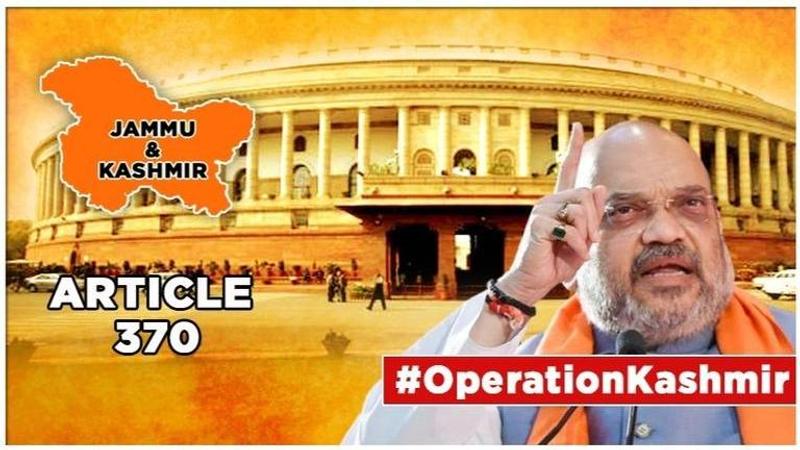Published 11:44 IST, August 5th 2019
Abrogation of Article 370 for Jammu and Kashmir and its consequences explained
Home Minister Amit Shah brought a proposal to revoke Article 370 from Jammu and Kashmir in the Parliament on Monday. The historic moment was met with a massive uproar in the Rajya Sabha.

Home Minister Amit Shah tabled a proposal to revoke Article 370 from Jammu and Kashmir allowing its full integration into the Indian Union on August 5 in the Parliament. The historic moment was met with a massive uproar in the Rajya Sabha.
The Home Minister in his proposal stated that the Modi government, under the advisement of recommends the revocation of Article 370. He added that the Centre has brought four proposals pertaining to the state to the Parliament.
The BJP had long opposed the special status provided for the state. In the previous NDA government led by former PM Atal Bihari Vajpayee, Article 370 could not be removed due to lack of a majority.
Abrogation of Article 370 was even a part of the BJP's manifesto ahead of Lok Sabha 2019 elections.
What is Article 370?
Article 370 of the Indian Constitution is a 'temporary provision' which grants autonomous, special status to the state. Under part XXI of the Constitution that looks at 'Temporary, Transitional and Special provisions,' the state was accorded with the special status under Article 370. All the provisions of the Constitution applicable to other states are not applicable to Jammu and Kashmir.
In 1947, the provision was drafted by Sheikh Abdullah, who was appointed as the Prime Minister of Jammu and Kashmir by Maharaja Hari Singh and former India PM Jawahar Lala Nehru.
As per the provisions of the article, the Parliament needs the state government's concurrence for applying laws except for defence, foreign affairs, communications and finance. Hence, the residents of the state live under a separate set of laws, including citizenship, ownership of property, and fundamental rights, in comparison to the rest of India.
Under Article 370 provisions, Indians from other states are forbided from purchasing property in Jammu and Kashmir.
Article 370 temporary provision?
However, despite contradictions, the Supreme Court, as well as the High Courts, have maintained that Article 370 is a permanent provision of the Constitution. In a judgement delivered in 2018, the Apex Court had stated that although the article is tagged as 'temporary', it is permanent in nature.
What is Article 35A?
Article 35A allows the Jammu and Kashmir legislature to define who are permanent residents of the state. It was inserted through the Constitution (Application to Jammu and Kashmir) Order, 1954, which was issued by President Rajendra Prasad under Article 370, on the Centre' s advice i.e.by the advice of the cabinet of India's then PM Jawahar Lal Nehru.
As per the J&K Constitution which was adopted in 1956, it defined a permanent resident as someone who was a state subject on May 14, 1955, or who has been a resident of the state for ten years and has lawfully acquired immovable property. A non-state subject cannot buy land or settle permanently in Jammu and Kashmir. It also ensures the permanent resident's special rights and privileges in government jobs, scholarships, aids and acquisition of property. The spirit of the article flows from 1827 and 1832 state subject laws of then Dogra ruler.
What are the consequences of abrogation?
Article 370 acted as an obstacle for Jammu and Kashmir's complete integration in India. Removal of Article 370 would take back the special status from the state, allow citizens from across the country to settle and buy land in Jammu and Kashmir and subsume people of the state into the mainstream.
There would be no permission required to set up industry and infrastructure if Article 370 is scrapped. Furthermore, in this case, the RPC will be replaced by the IPC and every amendment of the Constitution will be applicable to the rest of India will automatically apply to Kashmir as well. Along with that jobs and educational institutes would be open to everybody.
The removal of the Article will also allow West Pakistan refugees, Dogras, Bakarwala and Kashmiri Pandirs would have equal stake in the state without any permissions.
Updated 12:18 IST, August 5th 2019





